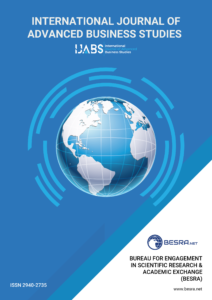Fahd Ali Raza1 , Abtar Darshan Singh2
1, PhD Candidate, Faculty of Business & Management, Asia Pacific University of Technology & Innovation, Kuala Lumpur, Malaysia. Email: tp074943@mail.apu.edu.my ORCID: https://orcid.org/0000-0003-4577-6083.
2, Professor & Director Digital Learning Hub, Asia Pacific University of Technology & Innovation, Kuala Lumpur, Malaysia. Email: abtar@ apu.edu.my ORCID: https://orcid.org/0000-0003-4525-5966
Abstract
This paper extensively examined the representation of women in Science, Technology, Engineering, and Mathematics (STEM) within Malaysia, contextualized globally and historically. Existing research affirms the growing presence of women in the workforce (Gupta, 2020; National Academies of Sciences & Medicine, 2020), their progress in higher education (Manongsong & Ghosh, 2021; Vietze et al., 2022), their presence in professional and managerial roles (Burton et al., 2020; Evans & Maley, 2021), and their successful elevation to CEO positions (Dadanlar & Abebe, 2020). However, women continue to be significantly underrepresented in leadership positions, particularly within STEM firms (Hideg & Shen, 2019; National Academies of Sciences & Medicine, 2020). Young Malaysian women excel in both academic and extracurricular STEM activities from primary to university. Despite this gender equity achieved in STEM education, with 29% of tertiary engineering graduates and 57% of science degree holders being female, only 6% of women pursue careers as STEM professionals (Looi, 2022). Additionally, slightly over 4% of women hold leadership roles in technology firms in Malaysia (Amin & Tan, 2018). Using social constructivist and feminist theories, this analysis examines how societal and environmental factors affect girls’ performance in math and science. Educators and parents play a vital role in providing crucial support. This study also highlights a major research gap, particularly in understanding where qualified women in STEM go, especially within Malaysia.
DOI: https://doi.org/10.59857/IJABS.1109

